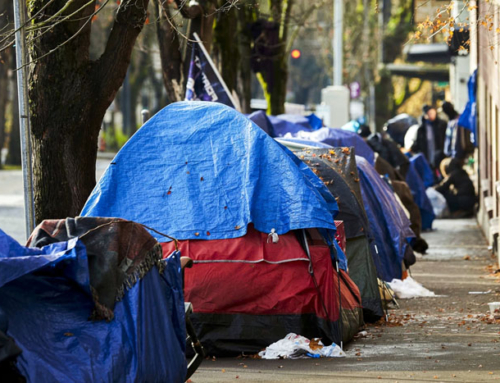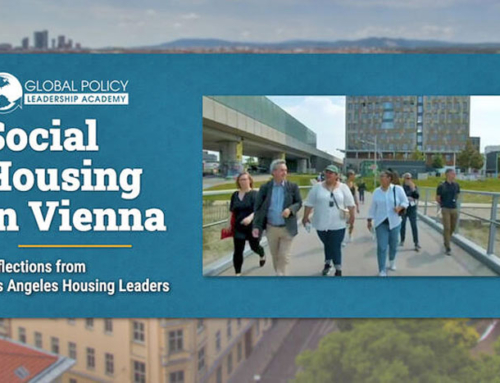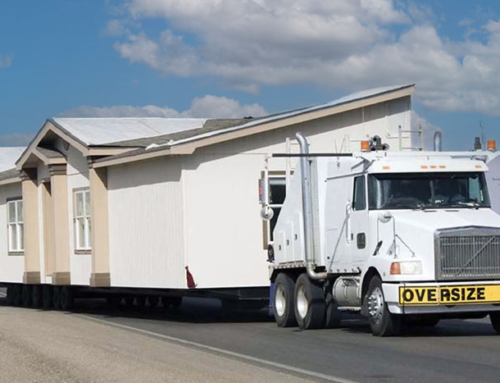As reported in the July newsletter – Budget Trailer Bills Include CEQA Reforms for Infrastructure but Not Housing – new laws were adopted this summer to streamline and reform the California Environmental Quality Act (CEQA) for infrastructure projects like solar, wind, battery storage, and transit and regional rail construction. While there have been efforts in recent years to amend CEQA in a way that promotes new infill residential development while addressing environmental concerns, housing continues to face CEQA challenges that result in increased costs and time to market. Legislative leaders recognize the need for more action and have proposed a number of high-profile bills that would make further reforms to CEQA that remove barriers to housing development. Below we highlight nine CEQA bills that seek to streamline housing approvals that are now being considered in the Legislature.
Why is this important? According to a study produced by the Center for Jobs and the Economy and the California Business Roundtable, an astonishing 50% of all housing developments were challenged using CEQA. The Pacific Research Institute studied the impacts when housing faces CEQA challenges, finding that developments take years longer to commence construction, resulting in hundreds of thousands in increased costs. In another study, Holland and Knight found that between the years 1997 and 2012, 62% of CEQA challenges were for infill development, and 67% of the challenges were brought forward by neighborhood groups, homeowners’ associations, and other entities that were specifically formed to bring forward a CEQA lawsuit.
Both the Senate and Assembly are on Summer Recess until August 14th. They will return to a full slate of bills that must pass each house by September 14th. The Governor will have until October 14th to sign or veto bills, or they become law without his signature.
These are some of the CEQA-related bills that the Legislature and Governor will be considering:
- AB 785 (Santiago D-Los Angeles) – Exempts from CEQA, until 2030, actions taken by the City of Los Angeles within the City and by the County of Los Angeles in unincorporated parts of Los Angeles County to create affordable housing, emergency shelters, supportive housing, or transitional housing. The 2023 Greater Los Angeles Homeless Count identified over 75,000 people experiencing homelessness on any given night in Los Angeles County and over 46,000 people experiencing homelessness in the City of Los Angeles. The bill is sponsored by Los Angeles Mayor Karen Bass.
- AB 1307 (Wicks D-Oakland, Hoover R-Folsom, and Luz Rivas D-Arleta) – Would reverse a recent court decision in the City of Berkeley’s People’s Park case by clarifying that the sound of resident’s voices shouldn’t be considered as an environmental impact under CEQA. The Governor has expressed his support of this bill. This is an urgency measure and would take effect immediately upon his signature. The bill is sponsored by the California Housing Consortium, the California Housing Partnership Corporation, and Housing California.
- AB 1449 (Alvarez D-Chula Vista, and Wicks D-Oakland) – This bill would exempt 100% affordable housing funded through the Low Income Housing Tax Credit Program from CEQA as long as it meets rigorous labor standards, complies with specified environmental requirements and is located on an infill site. Further, the development must be near a major transit stop, a very low vehicle travel area, or other areas as specified. The bill is sponsored by the California Housing Consortium, the California Housing Partnership Corporation, and Housing California.
- AB 1633 (Ting D-San Francisco) – Spurred by action taken by the San Francisco Board of Supervisors to require extraordinary environmental review for a 495-home development known as 469 Stevenson Street, AB 1633 was introduced in order to stop the abuse of CEQA by jurisdictions that attempt to block new housing developments that have already been found in compliance with local and state land use and environmental regulations. The bill does not amend CEQA, but rather adds two actions to the definition of “disapproval” of a housing development under the Housing Accountability Act. It also allows individuals to sue local agencies for noncompliance and to seek court action to require compliance. The bill is sponsored by the Bay Area Council, the California Housing Partnership Corporation, California YIMBY, the Housing Action Coalition, and the San Francisco Bay Area Planning and Urban Research Association (SPUR).
- SB 4 (Wiener D-San Francisco) – Streamlines the development of new affordable homes on land owned by faith-based institutions and nonprofit colleges by allowing multifamily housing by right, regardless of local zoning restrictions, as long as it is consistent with all local objective standards and complies with identified environmental protections. The bill is sponsored by the California Conference of Carpenters, the Inner City Law Center, the Jewish Public Affairs Committee, the Non-Profit Housing Association of Northern California and the Southern California Association of Non-Profit Housing.
- SB 91 (Umberg D-Santa Ana) – Current law exempts projects that facilitate housing for the homeless by converting motels, hotels, residential hotels, or hostels to supportive or transitional housing from the provisions of CEQA through January 1, 2025. This bill would make this exemption permanent. To date, SB 450 (2019), which originally allowed for this exemption, has facilitated the creation of more than 10,600 new hotel rooms and allowed for the leasing of an additional 15,800 through the Project Roomkey program. If the exemption terminates, then this tool to respond to homelessness will end.
- SB 393 (Glazer D-Orinda) – This bill would require a CEQA plaintiff or petitioner to disclose the identity of anyone contributing more than $10,000 with the intent of taking legal action against a housing development. In addition, it prevents a CEQA action from being filed against a development that is a part of a larger project or one that has already been approved under CEQA. Failure to comply with these requirements may be grounds for dismissal of the action by the court. This bill is the outcome of a long-fought development in Livermore proposed by Eden Housing that has been opposed by big-pocket local residents.
- SB 406 (Cortese D-San Jose) – This bill would eliminate duplicative review for affordable housing projects by extending an existing law that exempts State-financed affordable housing developments from CEQA review to financing provided by local agencies, provided that the project undergoes a CEQA review by another public agency. The project itself would still be subject to CEQA. Santa Clara County is the sponsor, with support coming from the California Apartment Association, the California Housing Partnership Corporation, and Destination: Home, among others.
- SB 423 (Wiener D-San Francisco) – Extends and strengthens SB 35 (2017) to further streamline and accelerate housing permits in localities that are underperforming on meeting RHNA goals. The bill extends the sunset from 2026 to 2036. It would also relax requirements for skilled and trained labor, expand the authorization to parcels where parking is a permitted use, and expand the bill’s provisions to include properties governed by the California Coastal Commission. This is considered to be one of the most crucial housing bills of 2023. The bill is sponsored by California YIMBY, the California Housing Consortium, Nor Cal Carpenters, and the Southwest Mountain States Regional Council of Carpenters.











